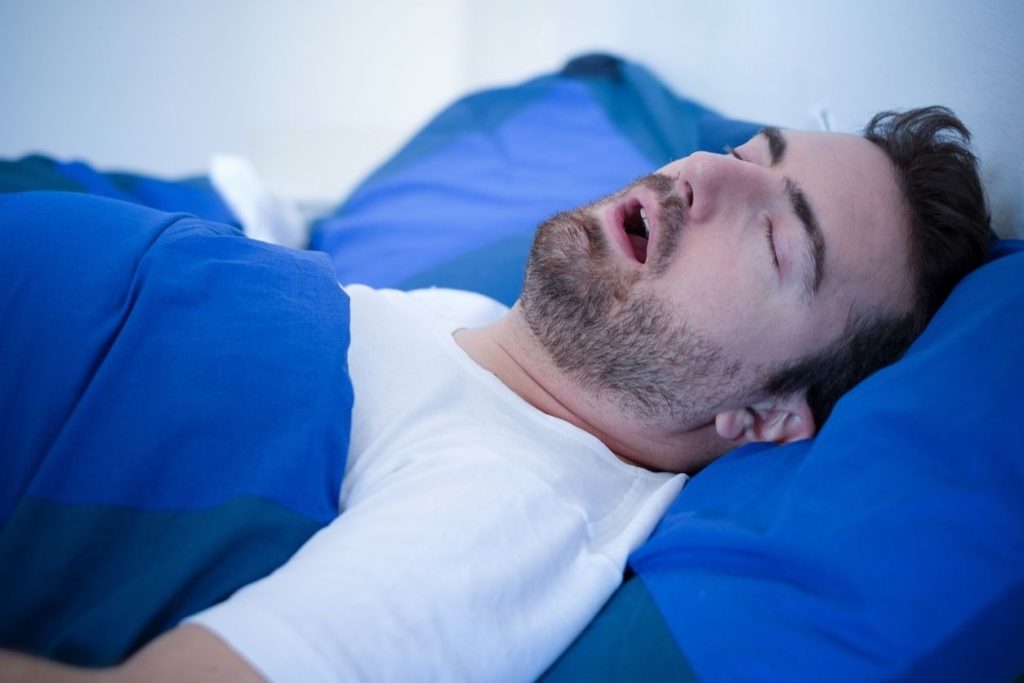Afraid of suffocating at night : what solution to breathe correctly ?
Caution : You must consult your doctor for your health. This page presents only a personal and alternative point of view which should not be considered as an attempt to prescribe medicine.
Sleep apnea disrupts nighttime rest, but also has repercussions during the day, on daily life.
There are treatments to fight "forgetting" to breathe at night.
It is also possible to resort to a natural means.
What solution to breathe better while you sleep?
Loris Vitry's solution, breathing coach.

Uncontrolled cessation of breathing during sleep
Sleep apnea is when you stop breathing while you are falling asleep.
The shutdown lasts a short time, 10 to 30 seconds, and can be repeated several times during the night.
Doctors judge the apnea pathological when the frequency reaches 5 stops per hour.
These interruptions in breathing are quite involuntary, they happen unconsciously.
Sleep apnea occurs in the case of poor breathing.
The air does not circulate enough, and breathing stops for several seconds.
Sleep apnea: fatigue, exhaustion, burn-out
Apneas disrupt sleep. Micro-awakenings, also very short, follow the periods of apnea so that the body can restart the breathing process.
The sleep cycle is disrupted, and rest is not restorative.
The consequences are manifold.
The repercussions are felt throughout the day.
The body is tired, a state of drowsiness can occur, as well as headaches and even a attack of tetany upon awakening.
In the long term, sleep apnea can increase the risk of developing cardiovascular disease, hypertension or even diabetes.
It is therefore necessary to act to breathe better at night.
Breathing better at night, the solution
The respiratory disorder of sleep apnea can have several causes.
A relaxation of the tongue and muscle tone are often blamed.
The pharynx and the diaphragm are also involved.
The diaphragm is the muscle of respiration.
If it gets blocked, the air flow no longer circulates normally, and the repercussions are felt.
It is possible to release the blocked diaphragm by normalizing your breathing.
A freed diaphragm normalizes the rhythm of inhaling and exhaling.
Basically innate, it is often disturbed and out of order.
Fortunately, it is quite possible to relearn this process to the body, to normalize its breathing to quickly and durably release the diaphragm.
This is an essential step and a natural way to breathe better at night and find regenerating and saving rest.
Loris Vitry, breathing coach, gives these precious tips to relearn how to breathe better.
In his complete and free video workshop, he directs us to 7 solutions to correct frequent errors that hinder good breathing.
The application of these advices makes it possible to move towards intermittent breathing, source of better being on a daily basis, and not important towards the return to calm and resting nights.
UPDATE: Sleep apnea equates to a low level of CO2 in the lungs.
In the video workshop that follows, you will be able to measure this and learn how to increase it.
❤ The ultimate guide to breathing
Intermittent Breathing : Discover the method to quickly relieve your anxiety and chronic fatigue (positive effects from the first use).Read also :
Previous article : Unhealthy introversion: how to overcome your embarrassment?
Next article : Spasmophilia and tetany attack : what to do to stop it ?

